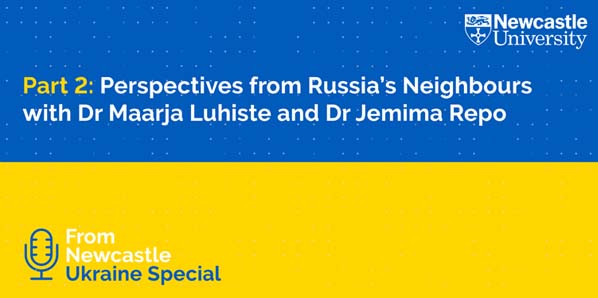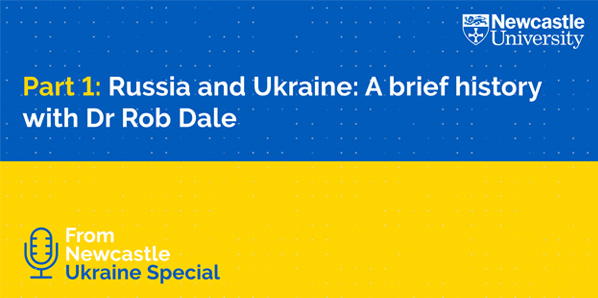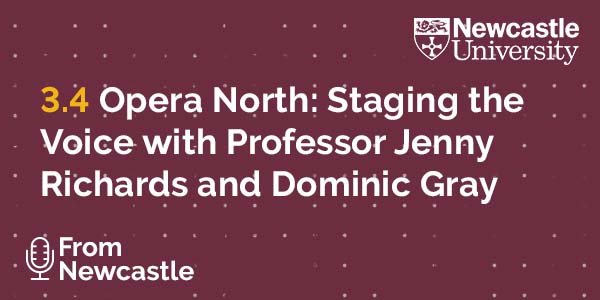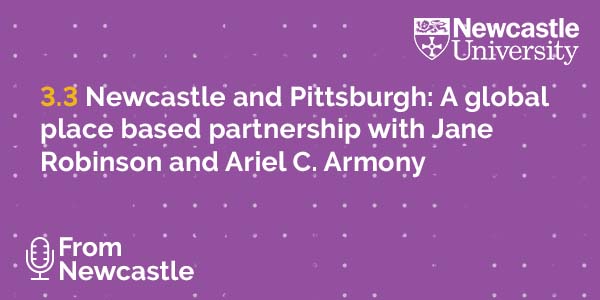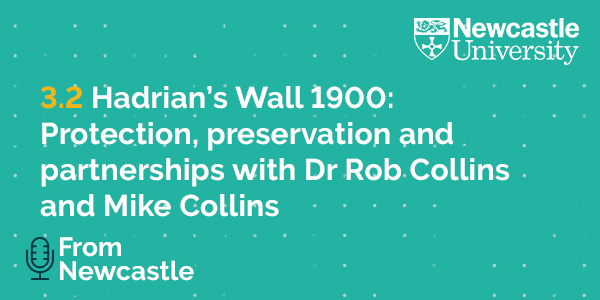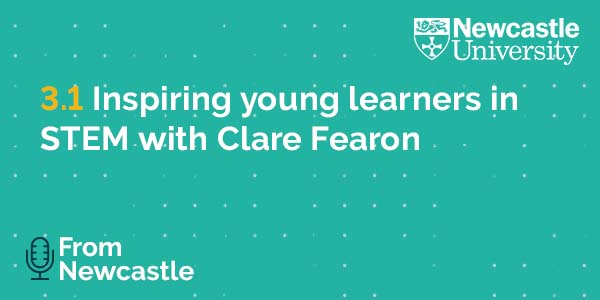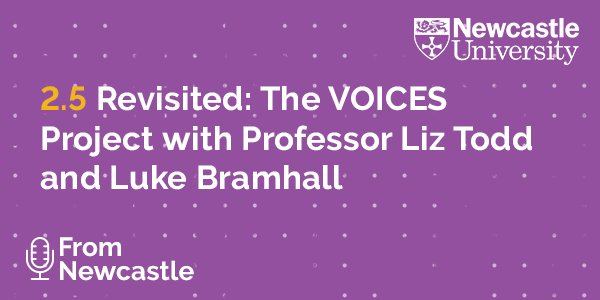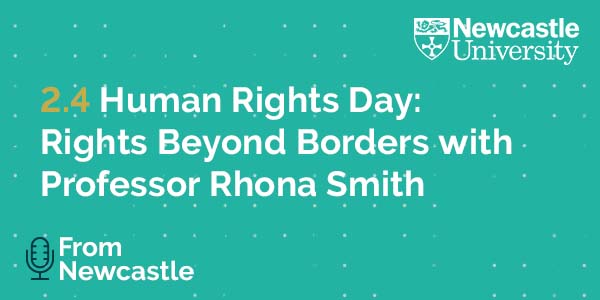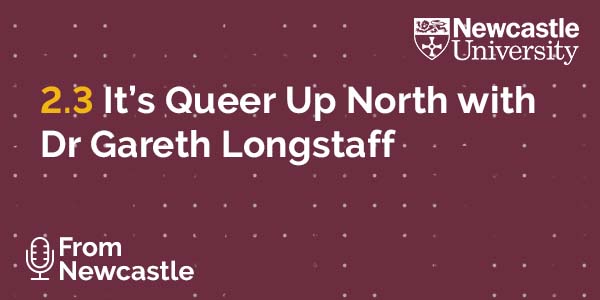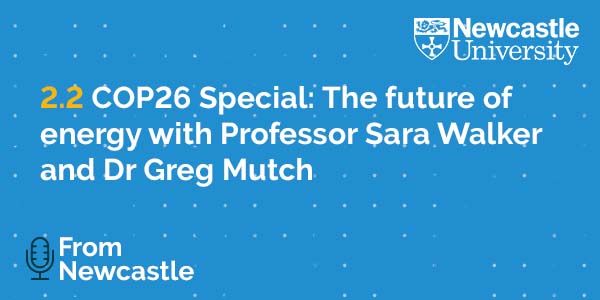From Newcastle Ukraine Special Series
On 24 February 2022, Russia began a military invasion of Ukraine, reported to be the biggest attack on a European state since World War Two. One month on, Newcastle University academics will provide expert comment and context to help understand the recent events in Ukraine. Over three episodes, we will learn about the history of the conflict, hear perspectives from neighbouring countries and explore Britain’s response to Ukraine.
In Part 2, Perspectives from Russia’s Neighbours, we talk to Dr Maarja Luhiste and Dr Jemima Repo.
Maarja is from Estonia and works as Senior Lecturer in Politics of Gender and Director of Research for the School of Geography, Politics and Sociology at Newcastle University. Her main research fields include gender and political communication, comparative politics and elections, and survey research.
Jemima is from Finland and Senior Lecturer in Politics of Gender at Newcastle University. Her research focuses on feminist political theory and bio-politics.
In this episode, which was recorded on 28 March, we learn about reactions to the invasion from neighbouring countries, NATO and the challenges faced by Ukrainian Refugees.
Find our more about Maarja and Jemima’s research.
Alongside our friends and partners across the City, Newcastle University stands in solidarity with the people of Ukraine. Find out more about our response to the war.

